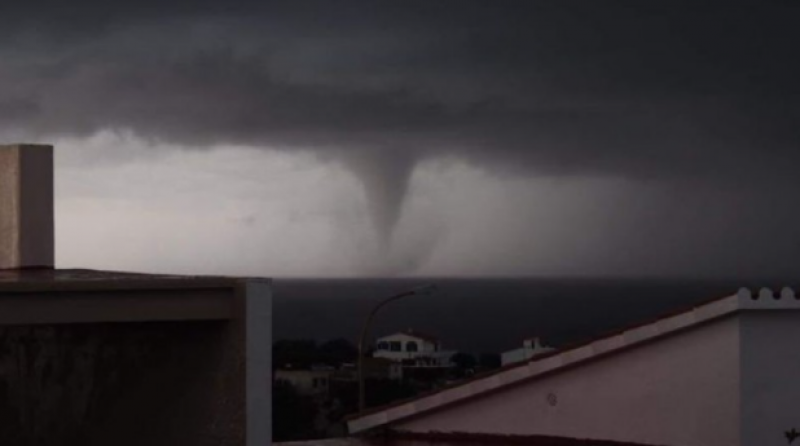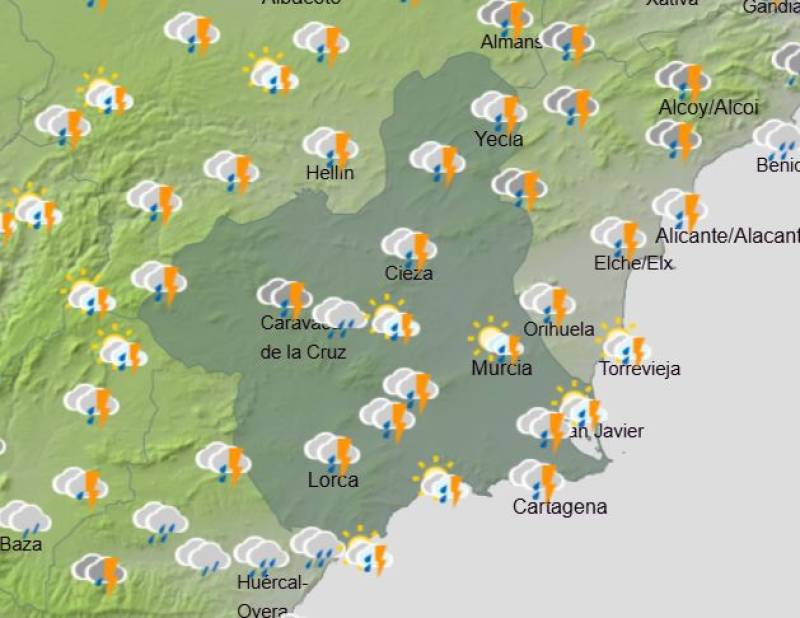- Region
- Vega baja
- Marina Alta
- Marina Baixa
- Alicante
- Baix Vinalopo
- Alto & Mitja Vinalopo
-
ALL TOWNS
- ALICANTE TOWNS
- Albatera
- Alfaz Del Pi
- Alicante City
- Alcoy
- Almoradi
- Benitatxell
- Bigastro
- Benferri
- Benidorm
- Calosa de Segura
- Calpe
- Catral
- Costa Blanca
- Cox
- Daya Vieja
- Denia
- Elche
- Elda
- Granja de Rocamora
- Guardamar del Segura
- Jacarilla
- Los Montesinos
- Orihuela
- Pedreguer
- Pilar de Horadada
- Playa Flamenca
- Quesada
- Rafal
- Redovan
- Rojales
- San Isidro
- Torrevieja
- Comunidad Valenciana
article_detail
Date Published: 01/12/2021
Tornadoes increase in Spain as its waters heat up
Climate change has resulted in more frequent and violent storms in Spain

Thanks to social media, stunning videos and photos of tornados and marine sleeves are now a common sight, but worringly their occurrence is becoming much more frequent, particularly on the Spanish coasts of Barcelona, Alicante and the Balearic Islands, due to the rising temperature of the oceans.
Tornadoes and marine sleeves are similar in appearance as they both form a swirling funnel, but a sleeve only forms over water and rarely makes landfall.
The major difference, however, is their environmental impact. Tornadoes are capable of generating winds of up to 500km/h that can last for several hours and in Spain, they are usually between 90 and 600 metres wide. Marine sleeves, or waterspouts, form on the surface of lakes and seas where they usually cause little damage, although they can still reach up to 900 metres in height.
Environmentalists now believe that climate change is contributing to the prevalence of tornadoes in Spain, as warmer waters provide more energy, which causes the spout to become all the more violent.
As long as the tornadoes remain at sea or hit areas that are not densely populated there is no real danger, but once they pass through inhabited areas, cities and towns, the results can be devastating.
A recent study published in the international journal Scientific Reports examined the impact of water temperature on a huge tornado that struck the Sicilian town of Taranto in 2012 which resulted in one death and caused 60 million euros in damages. When the tornado hit, the Ionian Sea was 1 degree warmer than the climatological average and consequent investigations found that, if the water had been at a lower temperature, the natural disaster would never have occurred.
Several Spanish researchers have confirmed that the coast of Spain is becoming an increasingly frequent scene of this type of phenomenon, and the intensity also looks set to increase more rapidly due to global warming.
Image: Archive
staff.inc.ali
Loading
Sign up for the Spanish News Today Editors Roundup Weekly Bulletin and get an email with all the week’s news straight to your inbox
Special offer: Subscribe now for 25% off (36.95 euros for 48 Bulletins)
OR
you can sign up to our FREE weekly roundup!
Read some of our recent bulletins:
Discount Special Offer subscription:
36.95€ for 48 Editor’s Weekly News Roundup bulletins!
Please CLICK THE BUTTON to subscribe.
(List price 3 months 12 Bulletins)
Read more stories from around Spain:
Contact Murcia Today: Editorial 000 000 000 /
Office 000 000 000




























